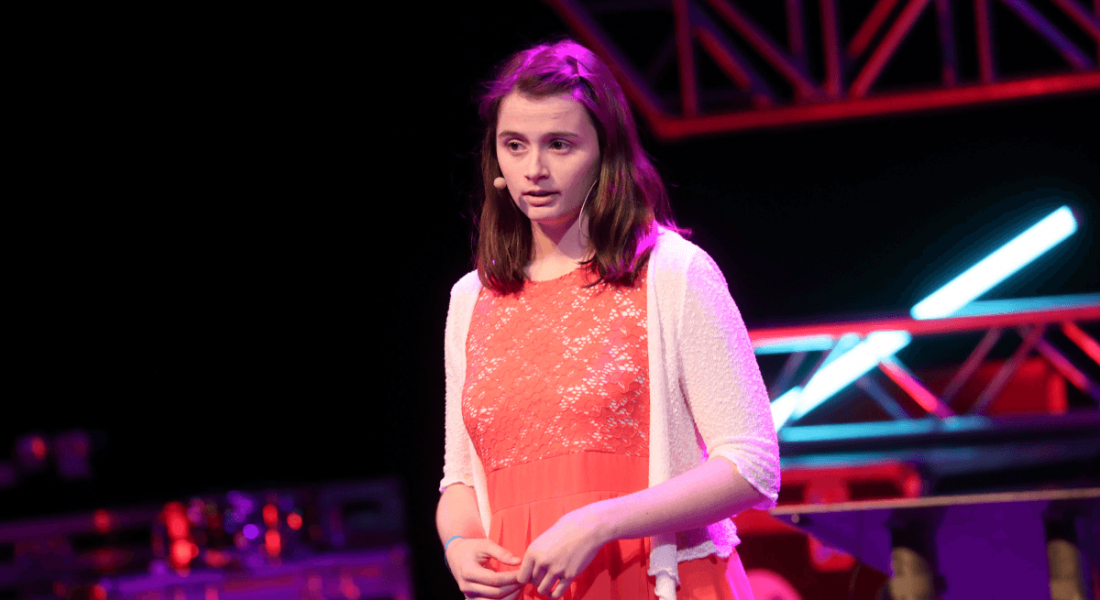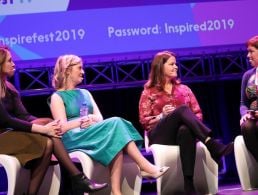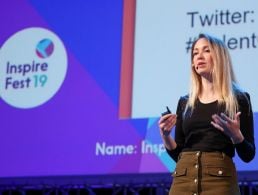Mi Contact founder Ciara-Beth Griffin told the audience at Inspirefest 2019 why she’s no longer telling people she designs apps specifically for autistic people.
When Ciara-Beth Griffin took to the stage at this year’s Inspirefest, she spoke about the power that words, numbers and statistics have in our world. Griffin mentioned how these words, numbers and statistics can all help to form our identities.
“When I was 14 years old, I was told I was one in 65 – one in 65 people who have autism spectrum disorder diagnosis. While the labelling of it was new to me, I knew I was different from the minute I started pre-school,” she said.
After receiving this diagnosis, Griffin spent much of her time researching how her brain worked, why it worked differently and what other autistic people feel like. During this research, it became apparent that there were some struggles and challenges that many – but not all – autistic people had faced.
“Very shortly after, I decided I was going to start developing apps specifically for people with autism. I emphasise that phrasing because I stopped using that phrasing about six months ago. I no longer design apps ‘specifically’ for people with autism,” she explained.
It was one email that brought Griffin’s attention to the power of her words, and it was that email that changed how she specified who her apps were aimed at.
“About six months ago, I received an email that will stick with me for quite a long time,” she explained. “It was a person who is not on the autism spectrum who reached out and said, ‘Hello, I am not an autistic person, but I really struggle with eye contact. Would it be okay for me to still use your app?’ And this kind of struck me as odd.
“The reason I had always emphasised the autism element was because it was a problem I knew was specific to an autism population. I never gave much thought about labelling it in any other way, but that one email made me look at it in a very different way.”
Griffin believes that targeting her app specifically towards people with autism is fine when it comes to advertising, but when it comes to attracting users, it can be divisive.
“While these labels are absolutely essential in some cases – without these labels we have no way to decipher who needs what supports. Using them needlessly in certain contexts just creates discrimination.”
The 20-year-old product designer spoke about how ‘inclusion’ and ‘diversity’ have become buzzwords, which are used interchangeably and as if they share a definition.
She separated the two words using an analogy she stumbled across online: “Diversity is receiving an invitation to a party, inclusion is being asked to dance.”
Griffin said she keeps this quote in mind as she continues to develop apps with a specific focus on issues that affect people on the autism spectrum.
“At the end of the day, they are apps designed for people. This is a crucial element that we all need to remember in technology when we’re designing something or developing something.
“Even though we will have a target user base, it’s not always vital that we stress that target user base in our tagline or in our product name. When we needlessly label things, people think they don’t have a right to access a tool that would be just as helpful to someone without a label as someone with a label.”
Inspirefest is Silicon Republic’s international event celebrating the point where science, technology and the arts collide. Ultra Early Bird tickets for Inspirefest 2020 are available now.




